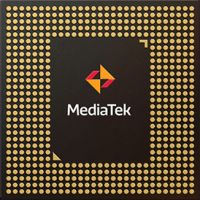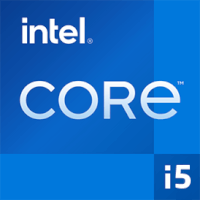

| MediaTek MT8389 | Intel Core i5-4300U | |
| 1.20 GHz | Frequência | 1.90 GHz |
| -- | Turbo (1 núcleo) | 2.90 GHz |
| Turbo (todos os núcleos) | 2.90 GHz | |
| 47 | Núcleos | 2 |
| Não | Hyperthreading? | sim |
| Não | Overclocking? | Não |
| normal | Arquitetura central | normal |
| PowerVR SGX544 | GPU | Intel HD Graphics 4400 |
| Versão DirectX | 11.1 | |
| 1 | Máx. monitores | 3 |
| LPDDR2 | Memória | DDR3L-1600 SO-DIMM |
| 0 | Canais de memória | 2 |
| Máx. Memória | ||
| Não | ECC | Não |
| 1.00 MB | L2 Cache | -- |
| -- | L3 Cache | 3.00 MB |
| Versão PCIe | 2.0 | |
| PCIe lanes | 12 | |
| 28 nm | Tecnologia | 22 nm |
| N/A | Socket | BGA 1168 |
| TDP | 15 W | |
| None | Virtualização | VT-x, VT-x EPT, VT-d |
| Q2/2013 | Data de lançamento | Q3/2013 |
| mostre mais detalhes | mostre mais detalhes |
O Cinebench R20 é o sucessor do Cinebench R15 e também é baseado no Cinema 4 Suite. Cinema 4 é um software usado mundialmente para criar formas 3D. O teste de núcleo único usa apenas um núcleo de CPU, a quantidade de núcleos ou capacidade de hyperthreading não conta.
O Cinebench R20 é o sucessor do Cinebench R15 e também é baseado no Cinema 4 Suite. Cinema 4 é um software usado mundialmente para criar formas 3D. O teste multi-core envolve todos os núcleos da CPU e tira uma grande vantagem do hyperthreading.
O Cinebench R15 é o sucessor do Cinebench 11.5 e também é baseado no Cinema 4 Suite. Cinema 4 é um software usado mundialmente para criar formas 3D. O teste de núcleo único usa apenas um núcleo de CPU, a quantidade de núcleos ou capacidade de hyperthreading não conta.
O Cinebench R15 é o sucessor do Cinebench 11.5 e também é baseado no Cinema 4 Suite. Cinema 4 é um software usado mundialmente para criar formas 3D. O teste multi-core envolve todos os núcleos da CPU e tira uma grande vantagem do hyperthreading.
Geekbench 5 é um benchmark de plataforma cruzada que usa muito a memória do sistema. Uma memória rápida empurra muito o resultado. O teste de núcleo único usa apenas um núcleo de CPU, a quantidade de núcleos ou capacidade de hyperthreading não conta.
Geekbench 5 é um benchmark de plataforma cruzada que usa muito a memória do sistema. Uma memória rápida empurra muito o resultado. O teste multi-core envolve todos os núcleos da CPU e tira uma grande vantagem do hyperthreading.
O desempenho teórico de computação da unidade gráfica interna do processador com precisão simples (32 bits) em GFLOPS. GFLOPS indica quantos bilhões de operações de ponto flutuante o iGPU pode realizar por segundo.
Geekbench 3 é um benchmark de plataforma cruzada que usa muito a memória do sistema. Uma memória rápida empurra muito o resultado. O teste de núcleo único usa apenas um núcleo de CPU, a quantidade de núcleos ou capacidade de hyperthreading não conta.
Geekbench 3 é um benchmark de plataforma cruzada que usa muito a memória do sistema. Uma memória rápida empurra muito o resultado. O teste multi-core envolve todos os núcleos da CPU e tira uma grande vantagem do hyperthreading.
O Cinebench 11.5 é baseado no Cinema 4D Suite, um software popular para gerar formulários e outras coisas em 3D. O teste de núcleo único usa apenas um núcleo de CPU, a quantidade de núcleos ou capacidade de hyperthreading não conta.
O Cinebench 11.5 é baseado no Cinema 4D Suite, um software popular para gerar formulários e outras coisas em 3D. O teste multi-core envolve todos os núcleos da CPU e tira uma grande vantagem do hyperthreading.
O Cinebench 11.5 é baseado no Cinema 4D Suite, um software popular para gerar formulários e outras coisas em 3D. O teste iGPU usa a unidade gráfica interna da CPU para executar comandos OpenGL.
Alguns dos CPUs listados abaixo foram avaliados pelo CPU-Benchmark. No entanto, a maioria das CPUs não foi testada e os resultados foram estimados por uma fórmula proprietária secreta do CPU-Benchmark \ u2019s. Como tal, eles não refletem com precisão os valores reais da marca Passmark CPU e não são endossados pela PassMark Software Pty Ltd.